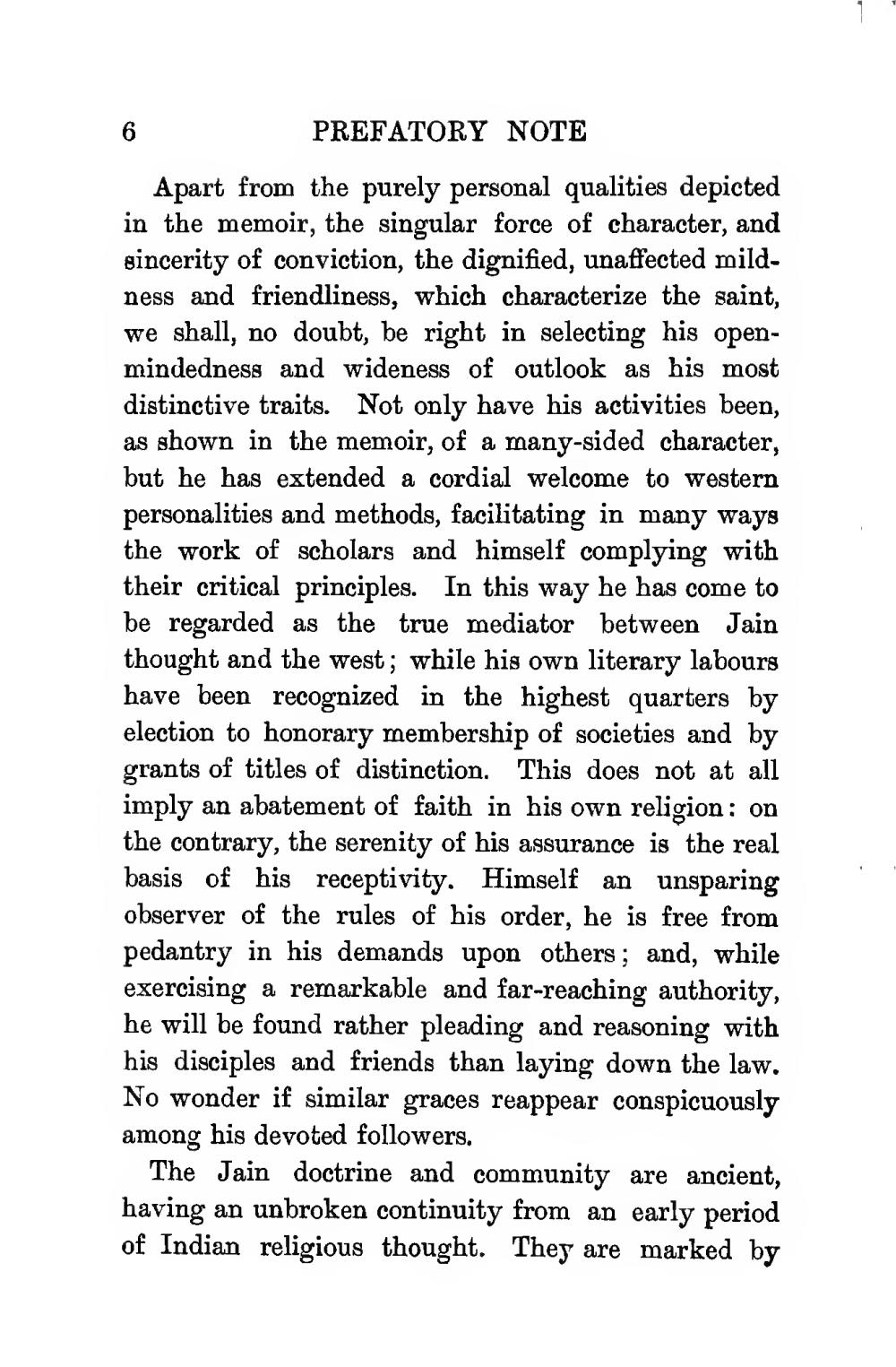________________
PREFATORY NOTE
Apart from the purely personal qualities depicted in the memoir, the singular force of character, and sincerity of conviction, the dignified, unaffected mildness and friendliness, which characterize the saint, we shall, no doubt, be right in selecting his openmindedness and wideness of outlook as his most distinctive traits. Not only have his activities been, as shown in the memoir, of a many-sided character, but he has extended a cordial welcome to western personalities and methods, facilitating in many ways the work of scholars and himself complying with their critical principles. In this way he has come to be regarded as the true mediator between Jain thought and the west; while his own literary labours have been recognized in the highest quarters by election to honorary membership of societies and by grants of titles of distinction. This does not at all imply an abatement of faith in his own religion: on the contrary, the serenity of his assurance is the real basis of his receptivity. Himself an unsparing observer of the rules of his order, he is free from pedantry in his demands upon others; and, while exercising a remarkable and far-reaching authority, he will be found rather pleading and reasoning with his disciples and friends than laying down the law. No wonder if similar graces reappear conspicuously among his devoted followers.
The Jain doctrine and community are ancient, having an unbroken continuity from an early period of Indian religious thought. They are marked by
6




